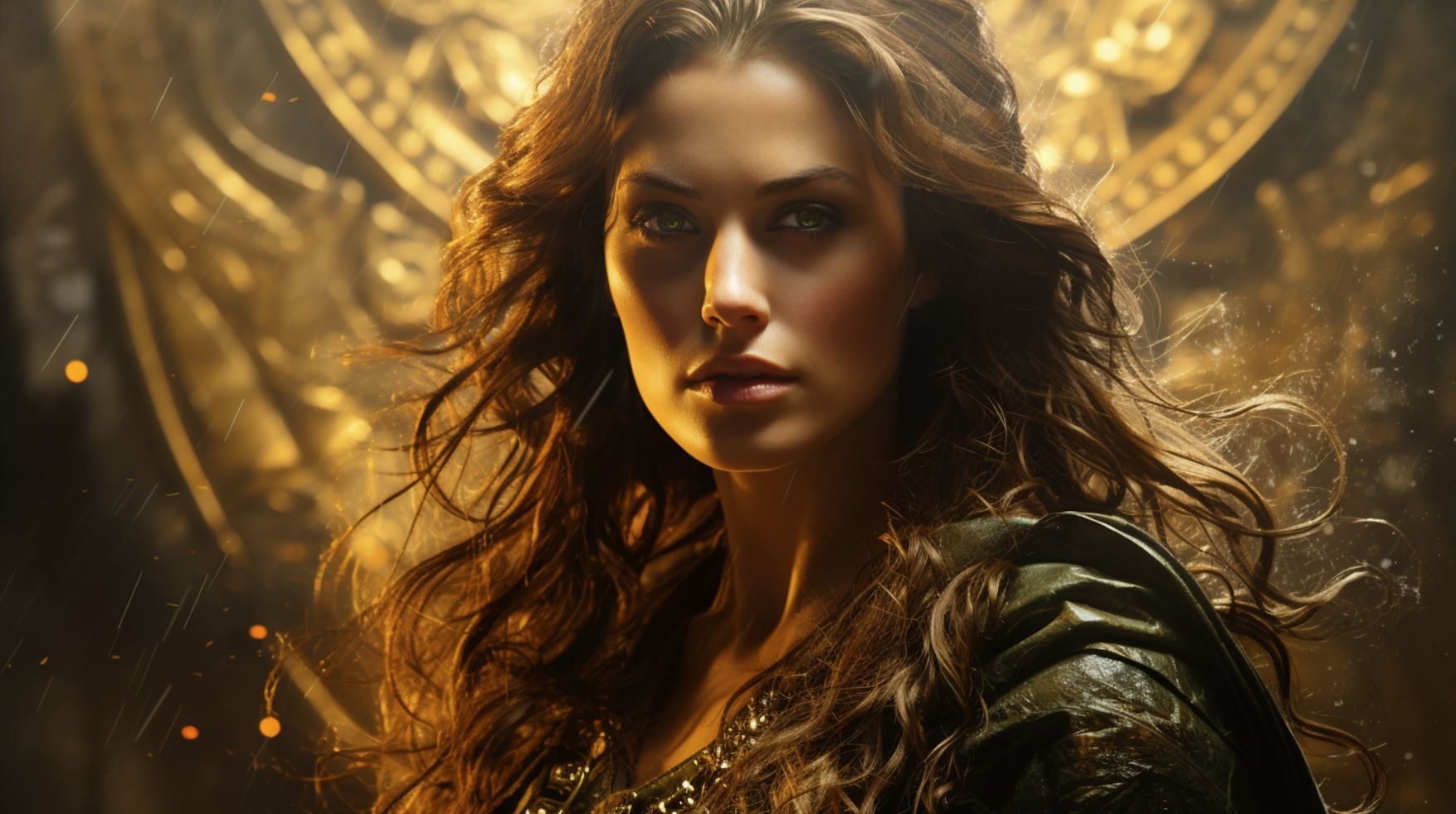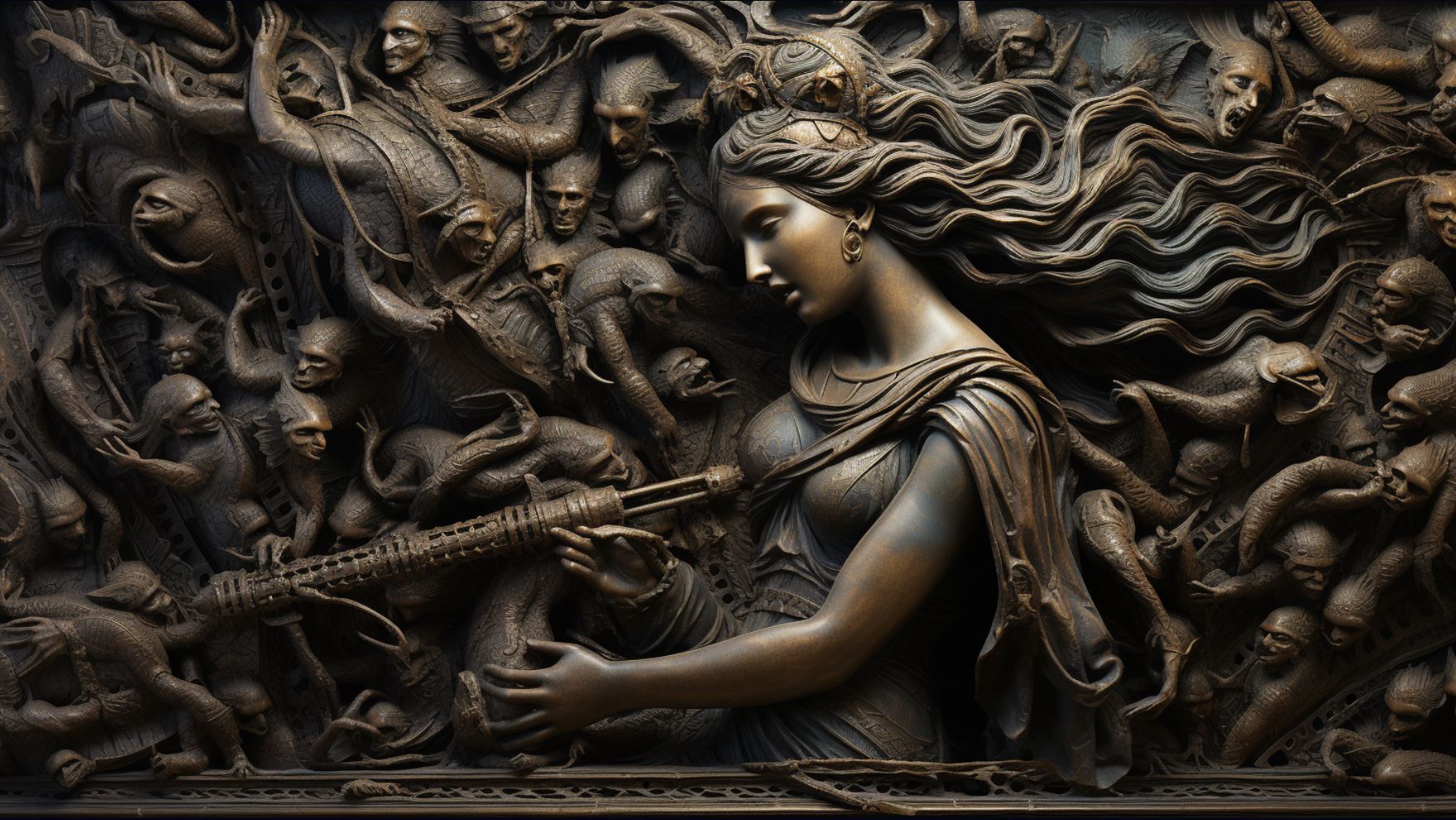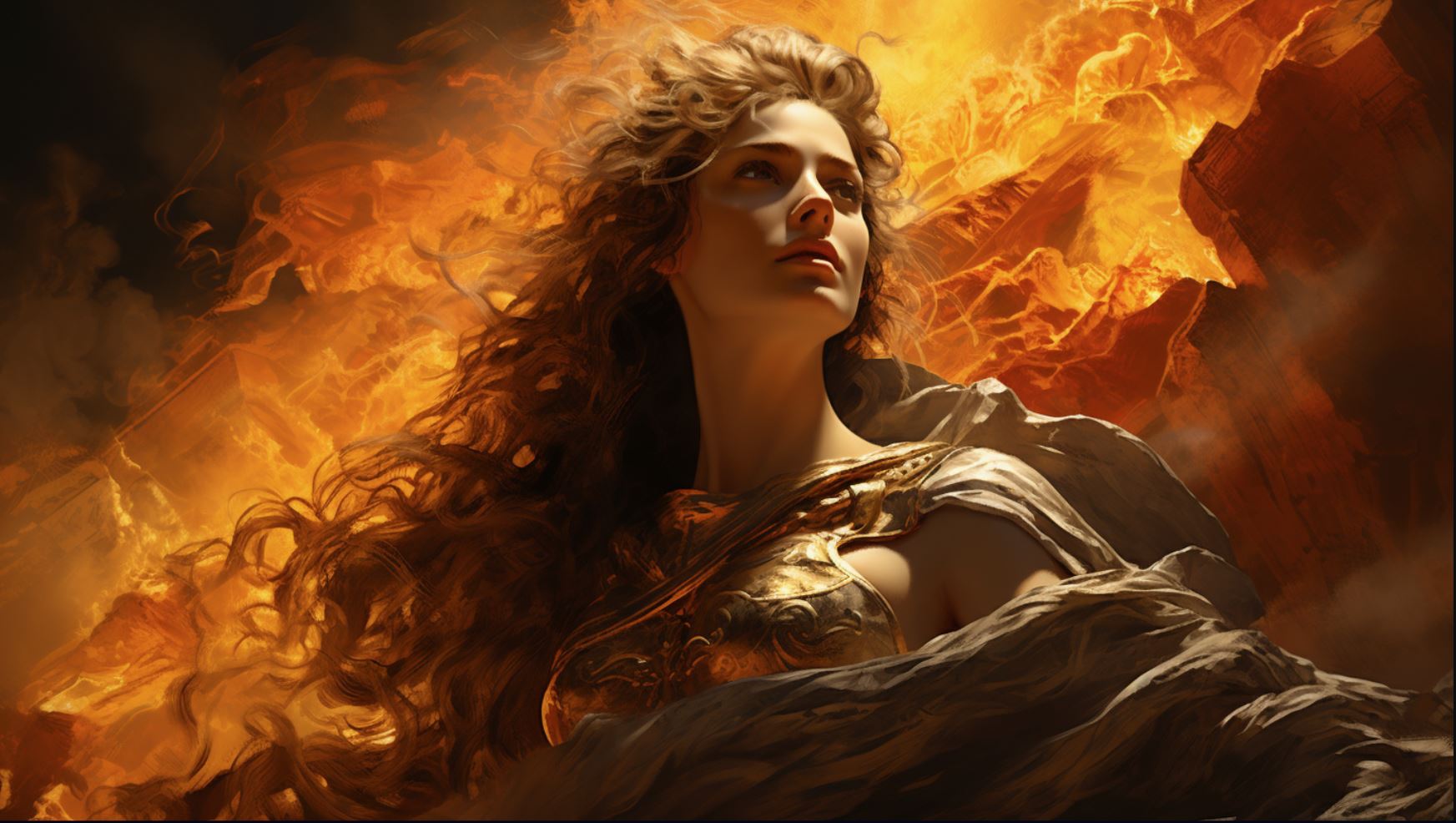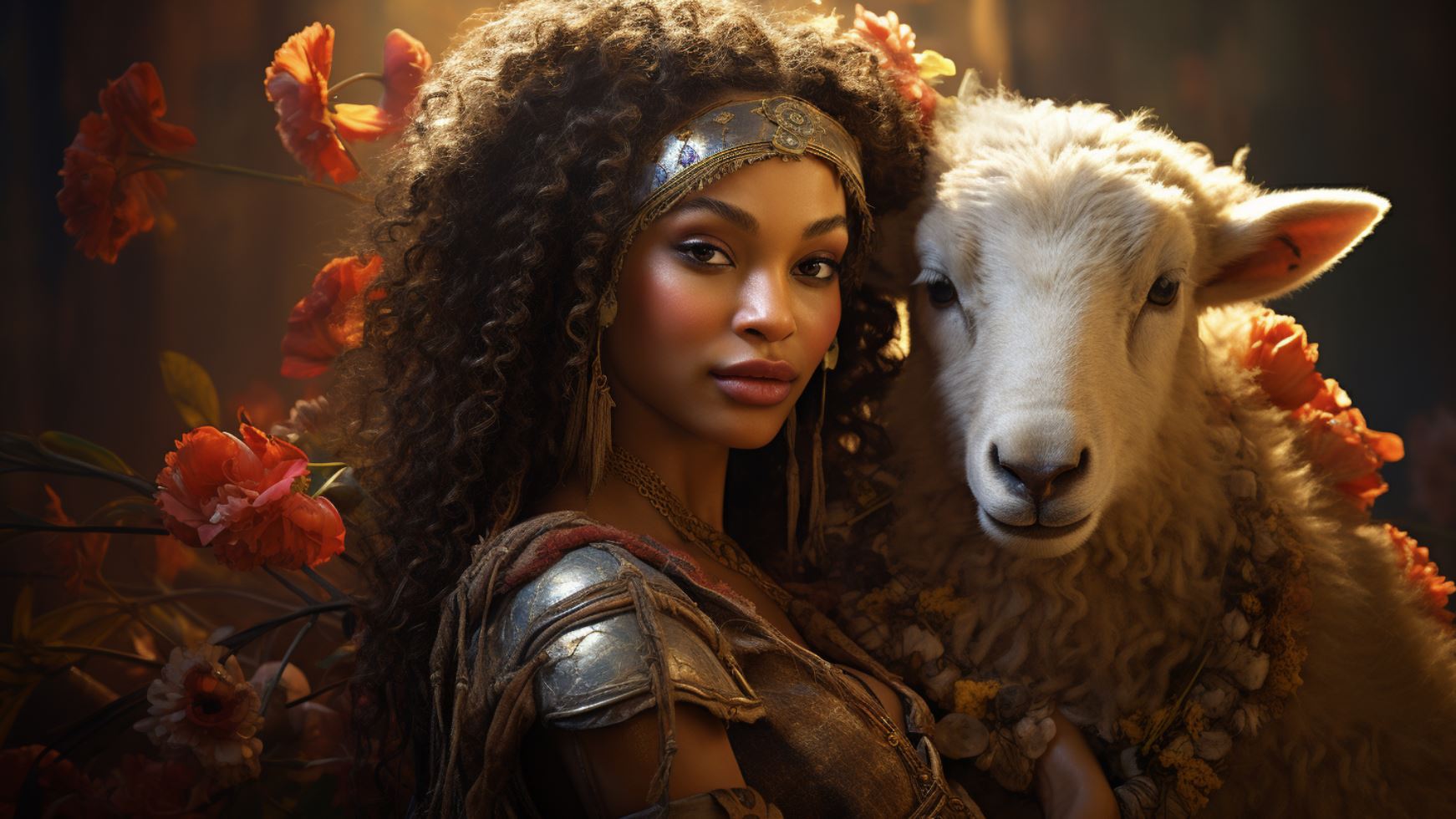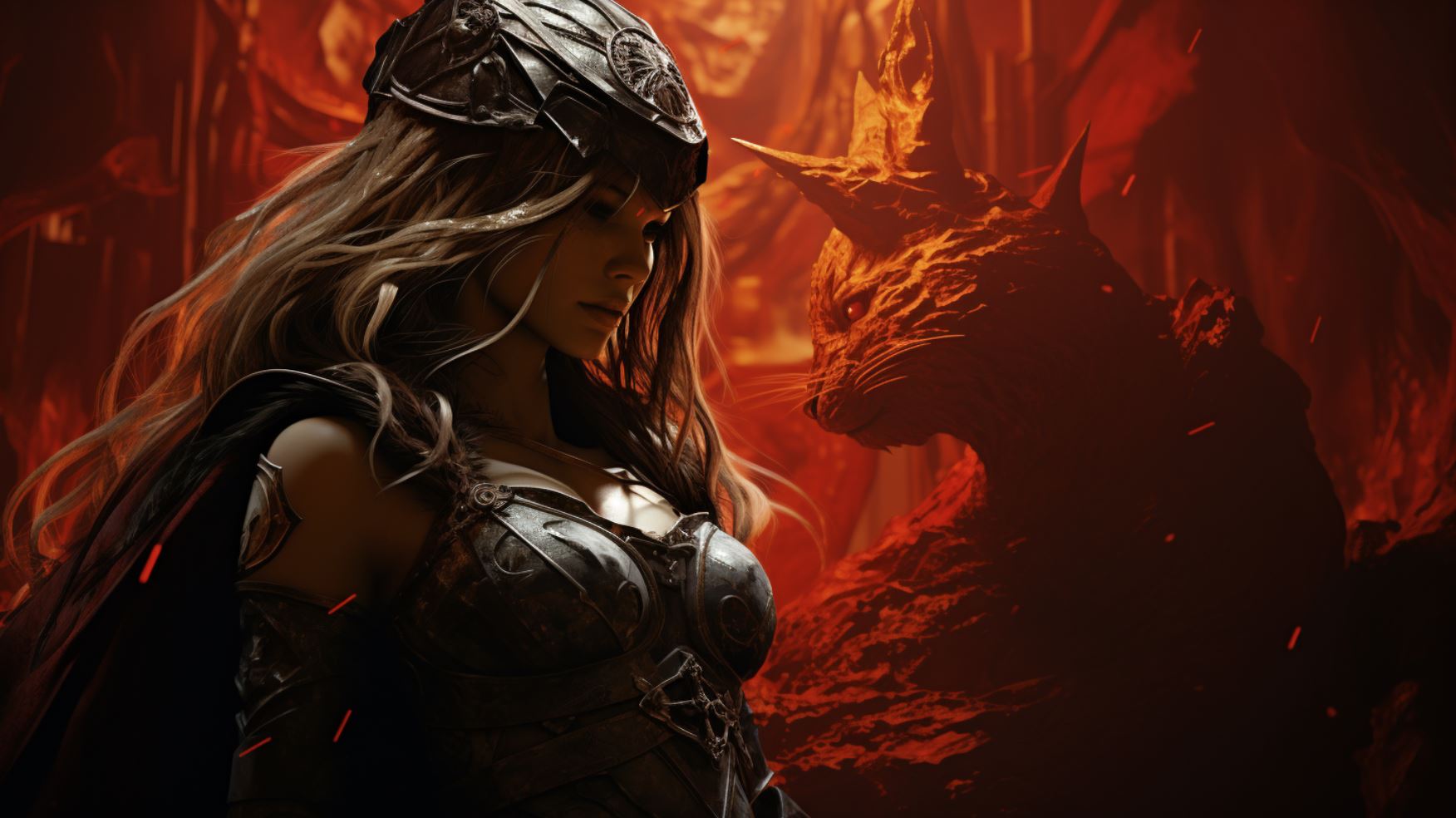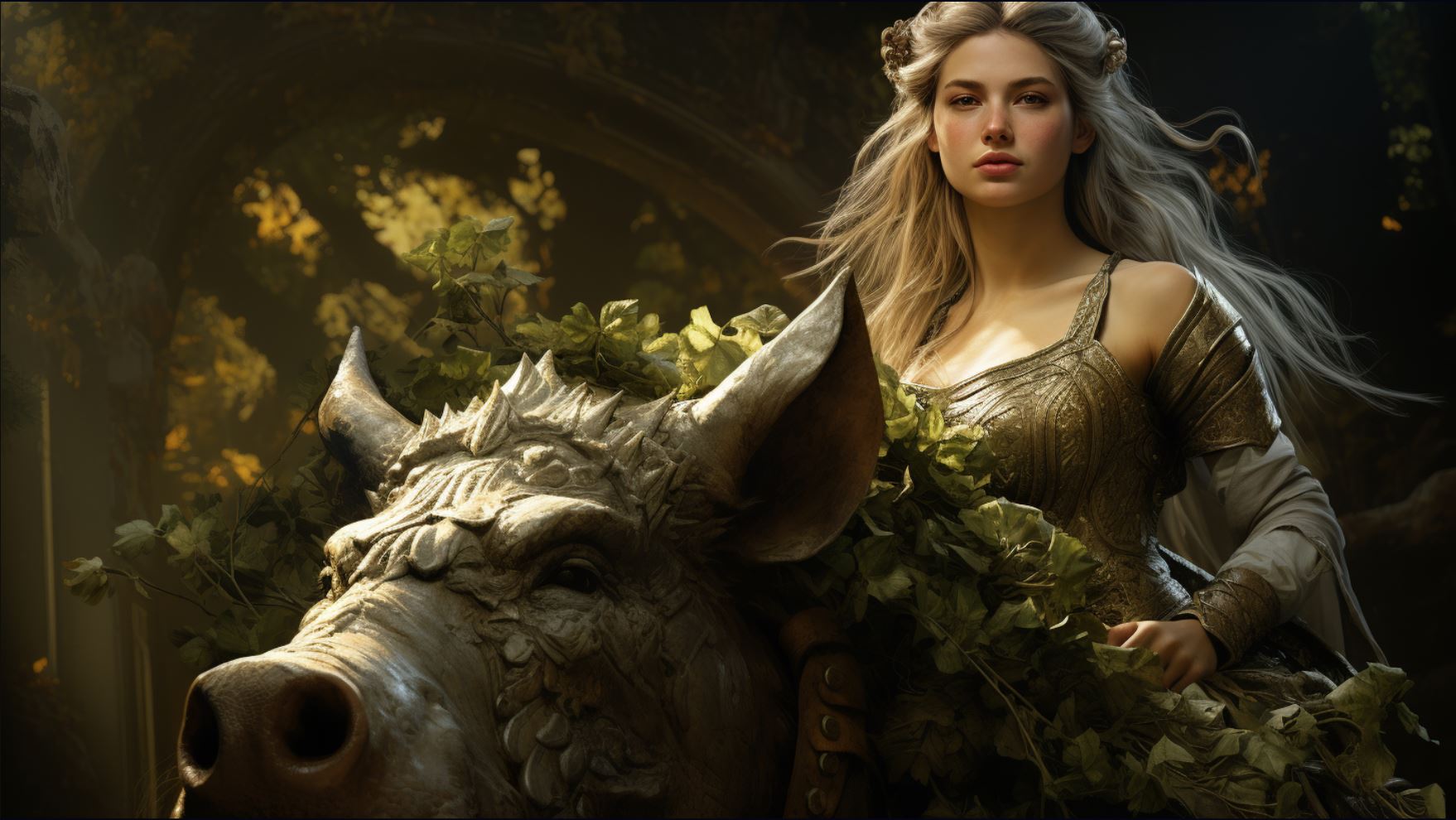Cathubodua Goddess: Unveiling the Celtic War Deity’s Power and Influence
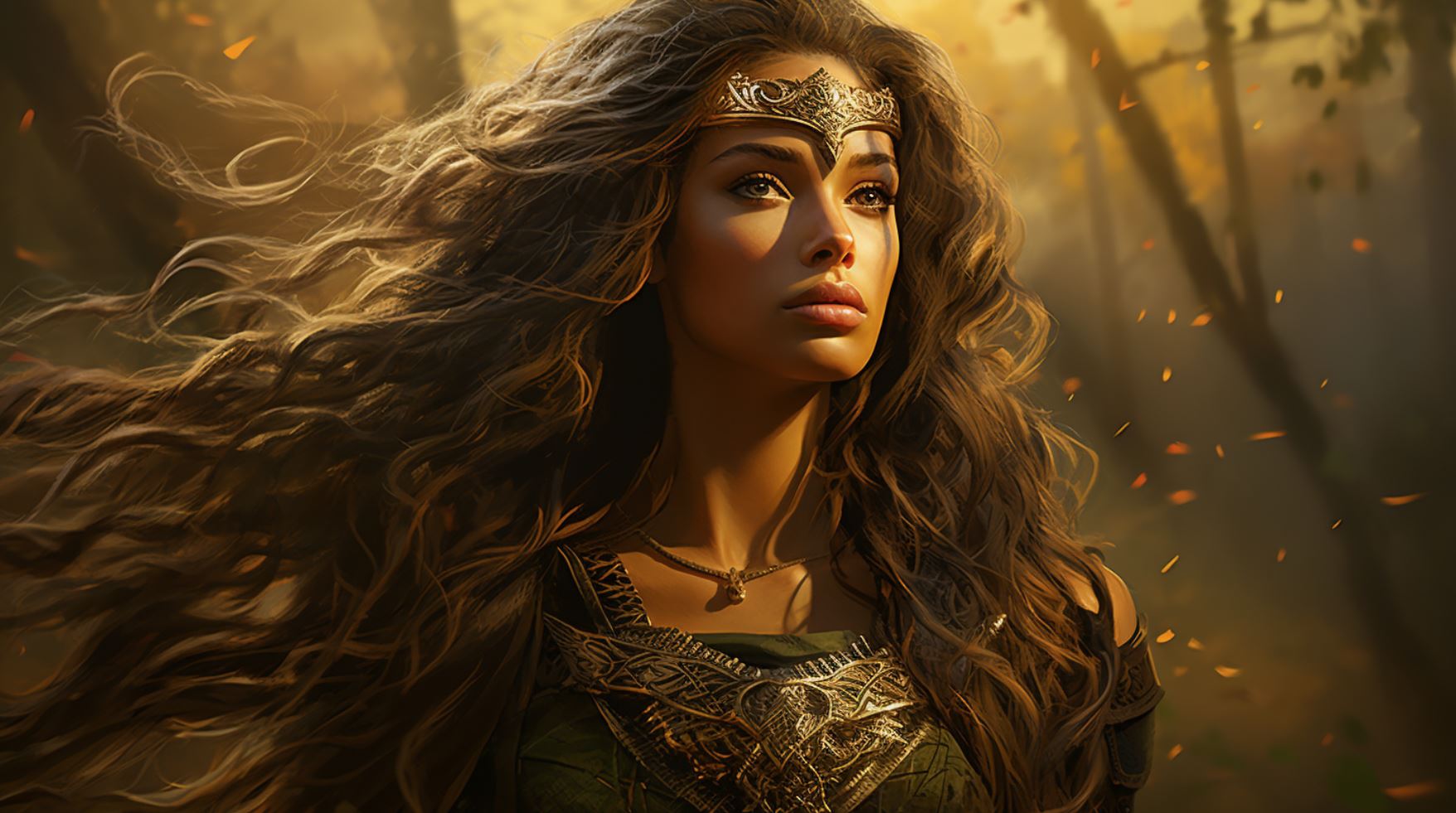
The Cathubodua Goddess is a prominent figure in Celtic mythology, specifically associated with war and battle. With deep connections to other influential Celtic goddesses like Badb and Morrigan, Cathubodua holds a significant role in the pantheon.
This article provides an overview of the background and history of Cathubodua, delves into her mythology, explores her symbolism as a war deity, and highlights modern practices and devotion to her.
With the Coru Cathubodua Priesthood as a leading source of worship, there are resources available for those interested in studying this powerful Celtic goddess.
Overview of Cathubodua Goddess
The Cathubodua Goddess is a revered figure in Celtic mythology, known for her association with war and battle. Her history and background provide insight into the significance of this Celtic war deity, allowing us to understand her place in the pantheon and her worshippers’ devotion.
Background and History of the Celtic War Deity
Rooted in ancient Celtic culture, Cathubodua Goddess emerged as a powerful entity embodying the essence of warfare. She represents the strength and courage exhibited by warriors in battle, commanding reverence and respect among her followers.
Although detailed historical records are scarce, Cathubodua’s presence can be traced through various Celtic myths and legends. Accounts of her divine interventions and influence in war narratives provide a glimpse into the reverence she held in Celtic society.
Associations with Battle and Warfare
Cathubodua’s role as a war deity is evident in her close association with battle and warfare. She is often invoked by warriors seeking her blessings and guidance on the battlefield, believed to grant strategic insight and protect her devotees from harm.
Legends depict Cathubodua as a fierce and formidable presence, inspiring courage and ferocity in those who fought under her influence. Her association with war reflects the values and ideals of the Celtic people, highlighting the importance placed on bravery and strength in combat.
Connections to Other Celtic Goddesses
Cathubodua shares a connection with other powerful Celtic goddesses, revealing the intricate web of divine relationships within the mythology. Notably, she is often mentioned alongside Badb and Morrigan, two prominent goddesses associated with war and battle.
These goddesses, collectively known as the goddesses of the crow, hold similar roles in Celtic mythology, symbolizing the fearsome aspects of war and embodying the power and authority of female deities.
Their interconnectedness reinforces the significance of Cathubodua’s role in the pantheon and underscores her influence as a formidable war goddess.
The Mythology of Cathubodua
Cathubodua, as a Celtic war deity, holds a significant role in Celtic mythology and is revered for her power and influence in the realm of battle and warfare. This section delves into the various aspects of Cathubodua’s mythology, exploring her role and significance, the depictions and symbols associated with her, as well as the captivating stories and legends surrounding this enigmatic goddess.
Role and Significance in Celtic Mythology
Cathubodua occupies a prominent place in Celtic mythology, embodying the fierce spirit of war and battle. She is often depicted as a divine warrior goddess, inspiring and empowering warriors on the battlefield.
Her role extends beyond mere conflict, as she represents the embodiment of courage, fortitude, and strategic prowess. Cathubodua’s significance lies in her ability to rally warriors and enhance their prowess, ensuring victory in battle.
Depictions and Symbols of Cathubodua
Cathubodua is commonly depicted in Celtic art and ancient tales, often portrayed as a formidable warrior adorned in battle attire. She is represented as a fierce and commanding figure, exuding strength and determination.
Depictions of Cathubodua often incorporate symbols associated with war and battle, such as weapons, armor, and the iconic crow, which symbolizes her connection to the supernatural realm. The presence of the crow serves as a beacon of her divine authority and prophetic nature.
Stories and Legends Surrounding the Goddess
Numerous fascinating stories and legends revolve around Cathubodua, showcasing her legendary status within Celtic mythology. Tales recount her interventions in pivotal battles, where she bestowed divine protection upon warriors and influenced the outcome of conflicts.
She is often depicted as a guardian and guide to heroes, bestowing them with valor and prophetic insights. These stories affirm Cathubodua’s enduring presence in Celtic folklore, solidifying her reputation as a respected and revered goddess of war.
Understanding the Goddesses Crow and War Symbolism
The symbolism of the crow holds great significance in Celtic culture, and its association with Cathubodua adds depth to her role as a war deity. In Celtic mythology, the crow is often seen as a messenger between the earthly realm and the Otherworld, bridging the gap between life and death.
Its black feathers and piercing gaze evoke a sense of mystery and otherworldliness.
The Symbolic Importance of the Crow in Celtic Culture
Within Celtic belief systems, the crow is associated with prophecy, transformation, and insight. Its presence is often seen as a symbol of spiritual guidance and protection during times of war and conflict.
The crow’s ability to soar through the sky, surveying the battlefield from above, represents a keen perception and strategic intelligence that aligns with Cathubodua’s warlike nature.
Cathubodua as a War Deity: Powers and Attributes
Cathubodua, known as the Celtic goddess of war, possesses formidable powers and attributes that embody her role as a warrior.
She is revered for her ability to inspire courage and ferocity in battle, empowering her worshippers and instilling fear in their adversaries. Cathubodua’s association with warfare also extends to her role in prophecy, as she guides and foretells the outcome of battles.
Comparisons with Other War Goddesses in Different Cultures
While Cathubodua holds a prominent place in Celtic mythology, it is intriguing to explore the parallels and distinctions between her and other war goddesses from different cultures. Comparisons can be drawn with deities such as the Norse Valkyries, who selected valiant warriors for the afterlife and served as figures of inspiration on the battlefield.
Additionally, the Greek goddess Athena embodies strategic warfare and is known as a patron of heroes.
Through an analysis of Cathubodua’s crow and war symbolism, we gain deeper insights into her multifaceted nature as a Celtic war deity.
Understanding the significance of the crow and exploring comparisons with other war goddesses broadens our comprehension of the cultural and mythological contexts surrounding her worship and reverence.
Worship and Reverence of Cathubodua
The worship and reverence of the Cathubodua Goddess hold a significant place in Celtic spirituality, with modern practitioners continuing to honor her power and influence.
This section delves into the contemporary practices and devotion centered around this Celtic deity.
Modern Practices and Devotion to the Celtic Deity
Devotees of Cathubodua engage in various rituals and ceremonies to express their reverence for the goddess. These practices may involve offerings, prayers, and meditations dedicated to Cathubodua, seeking her guidance and protection in matters of war, battle, and personal strength.
Cathubodua’s devotees also celebrate specific festivals and holy days to honor her and connect with her divine presence. These gatherings often incorporate ancient Celtic traditions, such as feasting, dancing, and storytelling, to further strengthen the bond between the worshipper and the goddess.
For those who follow Cathubodua, her worship is more than a spiritual practice—it is a way of life. Many devotees strive to embody the qualities and principles that she represents, embracing bravery, leadership, and fierce determination in their daily lives.
The Coru Cathubodua Priesthood and Their Mission
One notable organization dedicated to the worship of Cathubodua is the Coru Cathubodua Priesthood. With a specific focus on this Celtic deity, the priesthood provides guidance, support, and community for individuals seeking to deepen their connection with Cathubodua.
The Coru Cathubodua Priesthood prioritizes policies of hospitality, security, inclusion, and diversity, creating an environment where all individuals, regardless of background or identity, can come together in worship and reverence. They foster a sense of unity among Cathubodua’s followers and offer a safe space for the exploration of her teachings and spiritual practices.
As part of their mission, the Coru Cathubodua Priesthood welcomes and addresses community concerns, ensuring that the practices and beliefs surrounding Cathubodua remain respectful and nurturing for all members. They provide resources, teachings, and guidance to support individuals in their devotion to this powerful Celtic goddess.
Resources for Further Exploration and Study of Cathubodua Goddess
For individuals interested in delving deeper into the knowledge and mythology of Cathubodua, various resources are available to aid in their exploration and study. These resources may include books, articles, academic research, and online platforms dedicated to understanding Celtic mythology and the role of Cathubodua within it.
Additionally, the official website of the Coru Cathubodua Priesthood serves as a valuable source of information, offering insights into Cathubodua’s worship and the broader traditions associated with her. Through their website, interested individuals can access recommended reading lists, scholarly references, and further teachings on the mythology and symbolism of the Cathubodua Goddess.
As the legacy of Cathubodua continues to captivate the interest of scholars and practitioners alike, these resources provide a gateway to expanding knowledge and pursuing a deeper connection with this revered Celtic deity.
.

